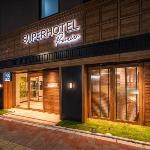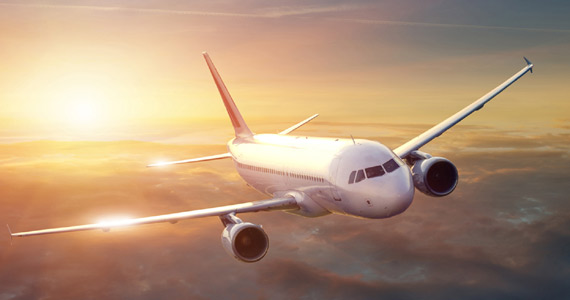|
starstarstar  Rating 8.2 mode_comment Very Good
|
Quintessa Hotel Tokyo Ginza
Chuo-Ku Ginza 4chome 201-11 Tokyo, Japan 1040061 |
| Check Rates |
|
starstarstar  Rating 8.5 mode_comment Excellent
|
Super Hotel Premier Ginza
Chuo-Ku Ginza 3-11-15 Tokyo, Japan 1040061 |
| Check Rates |
|
starstarstarstar_half  Rating 9.1 mode_comment Wonderful
|
TSUKI Tokyo
Chuo-Ku Tsukiji 1-9-4 Tokyo, Japan 1040045 room_service Room Service
|
| Check Rates |
|
starstarstar_half  Rating 5.9 mode_comment Okay
|
Hotel Livemax Higashi-Ginza
2-12-1 Tsukiji, Chuo-Ku Tokyo, Japan 1040045 |
| Check Rates |
|
starstarstarstar_half  Rating 8.4 mode_comment Very Good
|
the square hotel GINZA
2-11-6 Ginza Tokyo, Japan 1040061 room_service Room Service
|
| Check Rates |
|
starstarstarstar_half  Rating 8.8 mode_comment Excellent
|
Solaria Nishitetsu Hotel Ginza
4-9-2 Ginza, Chuo-Ku Tokyo, Japan 1040061 |
| Check Rates |
|
starstarstar  Rating 8.3 mode_comment Very Good
|
Sotetsu Fresa Inn Ginza-Sanchome
3-8-4 Ginza, Chuo Tokyo, Japan 1040061 |
| Check Rates |
|
starstarstarstar  Rating 8.9 mode_comment Excellent
|
Hotel GrandBach Tokyo Ginza
Chuo-Ku Ginza 5-13-12 Tokyo, Japan 1040061 room_service Room Service
|
| Check Rates |
|
starstarstarstar_half  Rating 8.1 mode_comment Very Good
|
Hotel Monterey Ginza
Chuo-Ku Ginza 2-10-2 Tokyo, Japan 1040061 |
| Check Rates |
|
starstarstarstar  Rating 8.6 mode_comment Excellent
|
Mitsui Garden Hotel Ginza-gochome
Chuo-Ku Ginza 5-13-15 Tokyo, Japan 1040061 |
| Check Rates |
A little about Tokyo...
Tokyo is one of the 47 prefectures of Japan and, unique among the prefectures, provides certain municipal services characteristic of a city, as defined by Japanese law. Because it is the seat of the Japanese government and the Imperial Palace, and the home of the Japanese Imperial Family, Tokyo is the de facto capital of Japan. (The name of Tokyo means "eastern capital" in Japanese).Tokyo is the most populous prefecture and city in the country. The twenty-three special wards of Tokyo, although each administratively a city in its own right, constitute the area informally considered as the "city of Tokyo" and are collectively one of the largest cities in the world with a total population of over 8 million people. The total population of the prefecture exceeds 12 million.
The Greater Tokyo Area, centered on Tokyo but also including Chiba, Kanagawa, and Saitama, is the most populous metropolitan area in the world with a population of over 35 million people. It has been the world's most populous urban area since between 1965 and 1970, and despite Japan's overall declining population, is still growing.
Tokyo has the largest metropolitan gross domestic product in the world for a city, and it held the title of the world's most expensive city for over a decade from 1992 through 2005.
Tokyo is a major global city and megacity. The name "Tokyo" refers variously to Tokyo Metropolis (the prefecture) as a whole, or only to the main urban mass under its jurisdiction (thus excluding west Tama and Izu and Ogasawara Islands), or even the whole of Greater Tokyo Area, which includes Tokyo, Kanagawa, Saitama, Chiba, Gunma, Tochigi, Ibaraki, and Yamanashi prefectures, depending on context.
Four national parks lie within Tokyo:
Chichibu Tama Kai National Park, in Nishitama and spilling over into Yamanashi and Saitama Prefectures
Meiji no Mori Takao Quasi-National Park, around Mount Takao to the south of Hachiōji
Fuji-Hakone-Izu National Park, which includes all of the Izu Islands
Ogasawara National Park. As of 2006, efforts were being made to make Ogasawara National Park a UNESCO natural World Heritage Site.
Transportation:
Tokyo is Japan's largest domestic and international hub for rail, ground, and air transportation. Public transportation within Tokyo is dominated by an extensive network of clean and efficient trains and subways run by a variety of operators, with buses, monorails and trams playing a secondary feeder role.
Expressways link the capital to other points in the Greater Tokyo area, the Kantō region, and the islands of Kyūshū and Shikoku.
Other transportation includes taxis operating in the special wards and the cities and towns. Also long-distance ferries serve the islands of Tokyo and carry passengers and cargo to domestic and foreign ports.
Education:
Tokyo has many universities, junior colleges, and vocational schools. Many of Japan's most prestigious universities are in Tokyo, the University of Tokyo being the most prestigious of all. National universities located in Tokyo include Hitotsubashi University, Tokyo Medical and Dental University, University of Electro-Communications, Tokyo Institute of Technology and University of Tokyo. There is only one public university (i.e., not national): the Tokyo Metropolitan University. Keio and Waseda Universities, top private universities in Japan, are located in Tokyo. Tokyo also has a few universities well-known for classes conducted in English. They include International Christian, Sophia, and Waseda Universities and Temple University Japan. For an extensive list, see List of universities in Tokyo.
Tokyo has many museums. In Ueno Park are four national museums: Tokyo National Museum, the country's largest museum and specializing in traditional Japanese art; the National Museum of Western Art; and the Tokyo National Museum of Modern Art, with its collections of Japanese modern art as well as over 40,000 Japanese and foreign films. Also in Ueno Park are the National Museum of Science and the public zoo. Other museums include the Nezu Art Museum in Aoyama; the Edo-Tokyo Museum in the Sumida Ward across the Sumida River from the center of Tokyo; and the National Diet Library, National Archives, and the National Museum of Modern Art, which are located near the Imperial Palace.
Tokyo has many theaters for the performing arts as well. These include national and private theaters for traditional forms of Japanese drama (like noh and kabuki) as well as modern dramas. Symphony orchestras and other musical organizations perform Western and traditional music. Tokyo also hosts modern Japanese and Western pop and rock music at venues ranging in size from intimate clubs to internationally known arenas like the Nippon Budokan.
Many different festivals occur throughout Tokyo. Major events include the Sannō at Hie Shrine, the Sanja at Asakusa Shrine, and the biennial Kanda Festivals. The last features a parade with elaborately decorated floats and thousands of people. Annually on the last Saturday of July, an enormous fireworks display over the Sumida River attracts over a million viewers. Once cherry blossoms, or sakura, bloom in spring, many residents gather in Ueno Park, Inokashira Park, and the Shinjuku Gyœn National Garden for picnics under the blossoms.
Cuisine in Tokyo is internationally acclaimed. In November of 2007, Michelin released their guide for fine dining in Tokyo, garnering 191 stars in total, or about twice as many as its nearest competitor, Paris. Eight establishments were awarded the maximum of three stars (Paris has 10), 25 received two stars, and 117 earned one star. Of the eight top-rated restaurants, three offer traditional Japanese fine dining, two are sushi houses, three serve French cuisine.
Harajuku Station on the Yamanote Line in the Shibuya ward of Tokyo, Japan is known internationally for its youth style and fashion.
As the largest population center in Japan and the location of the country's largest broadcasters and studios, Tokyo is frequently the setting for many Japanese movies, television shows, animated series (anime), and comic books (manga). In the kaiju (monster movie) genre, landmarks of Tokyo are routinely destroyed by giant monsters such as Godzilla.
Some Hollywood directors have turned to Tokyo as a filming location for movies set in Tokyo. Well-known examples from the postwar era include Tokyo Jœ, My Geisha, and the James Bond film You Only Live Twice; well-known contemporary examples include Kill Bill, The Fast and the Furious: Tokyo Drift and Lost in Translation.
- Hotels
Hotels in cities near Tokyo
Minato, Japan Hotels - 3 mi / 4 km
Shinagawa, Japan Hotels - 4 mi / 7 km
Yokohama, Japan Hotels - 16 mi / 26 km
Utsunomiya, Japan Hotels - 19 mi / 30 km
Atsugi, Japan Hotels - 27 mi / 43 km
Narita, Japan Hotels - 32 mi / 51 km
Shinjuku, Japan Hotels - 38 mi / 62 km
Kanagawa, Japan Hotels - 48 mi / 77 km
Hakone, Japan Hotels - 53 mi / 85 km
SaveOnHotels.com is the easiest way to help you find the best savings on hotels in Tokyo, Japan.
You can compare all of the Tokyo hotel rooms including the major Tokyo hotel chains using our unique guest rating system as well as Tokyo hotel reviews to help find the perfect hotel room when booking your accommodation in Tokyo, Japan.
Why use SaveOnHotels.com to book your Tokyo lodging & accommodation?
We can help you to find the perfect Tokyo hotel room for almost any occaision. Using our fast hotel search you will be able to compare different Tokyo hotels by:
- Locations within Tokyo
- Neighborhoods in Tokyo
- Nearby Tokyo attractions
- Hotels in nearby Tokyo cities
- Hotels in different areas of Japan
- By promotional rates
- Price
- Star rating
- Amenities
- Hotel name & chain
For hotels in Tokyo, Japan we provide:
- Up to the minute hotel rates & availability
- Detailed hotel information and photos
- Comprehensive Tokyo maps showing the locations of hotels in Tokyo and the nearest transportation and landmarks
- Save On Hotels Tokyo hotel ratings
When you make a hotel reservation in Tokyo with Save On Hotels we'll send you email confirmations with the reservation details of your hotel booking along with hotel contact details, directions, information on nearby Tokyo attractions, and if you get stuck, we're only a phone call away.
To make the most of our service, check back frequently to view up to the minute Tokyo hotel savings.
Tokyo, Japan Hotels. Hotels in Tokyo. Hotels in Tokyo Japan 104-0061. Inns, Bed and Breakfasts, Resorts, Lodging including Tokyo vacation packages. Tokyo motels lodging accommodation - hotel reviews, visitor reviews, advice, guide, travel packages, Vacation Tourist, Info. / Tourist Information

Find a Flight
Book It
Find a Car
Rent ItReport Errors - Send Feedback